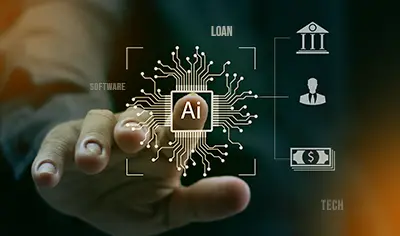The future is now, and AI Agents are steering the wheel. These smart systems have advanced from basic assistants to powerful tools that automate workflows, customize client engagements, and transform business productivity. It is crucial for CIOs and IT leaders to grasp how technology pioneers such as Salesforce, Microsoft, and ServiceNow utilize these technologies to remain competitive.
The emergence of AI Agents aligns with the growing needs of a digital-first economy. Companies are now discussing the speed at which they can expand automation, rather than questioning its necessity. As businesses move toward hybrid work models and digital ecosystems, AI Agents are meeting these needs by providing intelligent solutions to current challenges, including improving customer support, simplifying remote workflows, and delivering data-driven insights in real time. With adoption rates on the rise, Gartner projects that 60% of businesses will implement AI Agents for customer service by 2025, making it vital to assess these solutions right now.
Statista predicts that the global market size for AI tech will grow significantly, potentially exceeding $200 billion by 2030. This underlines the urgency for CIOs and decision-makers to strategically implement and incorporate these tools.
Beyond their economic value, AI Agents are also reshaping customer expectations. End-users increasingly demand faster responses, more personalized interactions, and frictionless resolutions—all areas where AI Agents excel. Businesses adopting these tools are positioning themselves as leaders in innovation and customer satisfaction.
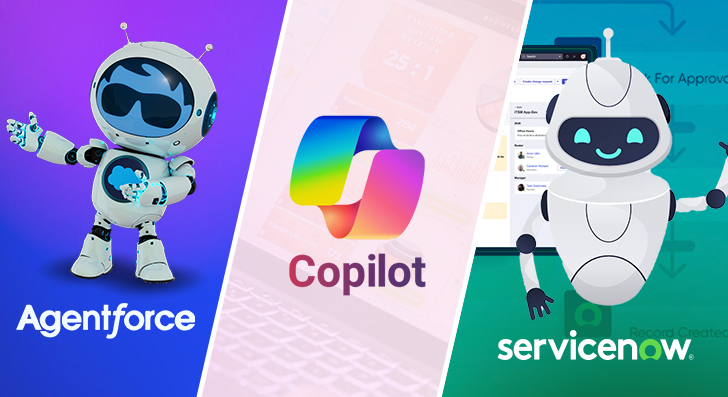
The Big Leap: How AI Agents Evolved from Chatbots to Business Dynamos
The evolution of AI Agents is truly remarkable. The progression from rule-based chatbots answering basic FAQs to robust autonomous systems has been significant. During the 2010s, improvements in natural language processing (NLP) and machine learning (ML) algorithms allowed AI systems to better comprehend human intent. In the early 2020s, AI Agents evolved into tools capable of foreseeing needs, providing predictive insights from elaborate datasets.
This leap was further accelerated by the fusion of cloud computing and edge technologies. The ability to process information in real time without relying solely on centralized servers enabled AI Agents to perform seamlessly, even in data-sensitive environments. These advances enabled them to be not just faster but also more accurate and context-aware, enabling them to adapt and learn from user actions.
According to McKinsey, currently, these tools are transforming customer care functions delivering tangible gains like a 30%-45% increase in operational productivity. AI Agents are expanding into various industries, from automating supply chains to offering predictive maintenance in manufacturing.
Industries ranging from healthcare to retail are adopting AI Agents not only to automate processes but also to revolutionize customer experiences. In ecommerce, AI-powered assistants can suggest products by analyzing real-time behavioral data. In finance, they streamline fraud detection processes.
What Powers the Magic? The Structure of AI Agents
AI Agents go beyond being simply software and are actually digital partners that can independently learn, analyze, and carry out tasks. Their key functionalities include:
- NLP: Enabling seamless, human-like interactions.
- Machine Learning: Learning from past data to improve over time.
- Predictive Analytics: Anticipating trends and outcomes for smarter decisions.
- Automation: Performing repetitive tasks without human input.
This technological backbone makes them perfect for optimizing processes across industries:
- Customer Service: AI-driven chatbots quickly address customer concerns, cutting down on wait times and improving overall satisfaction.
- Sales and Marketing: Smart agents identify leads, recommend products, and personalize marketing campaigns, driving engagement.
- IT Operations: Agents monitor system health, predict anomalies, and automate issue resolution to ensure business continuity.
- Healthcare: Tools analyze patient data, predict health risks, and improve care delivery.
These real-world applications underline the transformative power of AI Agents, making them indispensable in a rapidly digitizing economy.
Adding another layer of value, AI Agents are also becoming increasingly specialized. For example, virtual sales assistants can dynamically adjust pitches based on buyer sentiment analysis, while HR-focused agents streamline recruitment by identifying the best-fit candidates from large pools. This specialization drives efficiency while enhancing the overall user experience.
Salesforce: Building the Future with Agentforce
Salesforce is rewriting the rules of customer engagement and business optimization with its innovative AI tools.
Agentforce: Where Automation Meets Intelligence
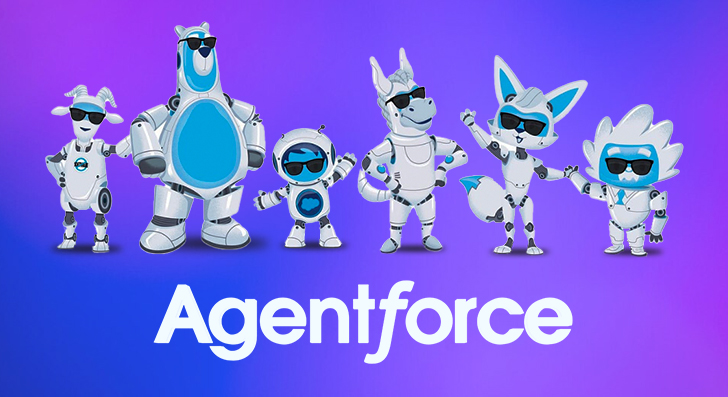
Successor to Salesforce Einstein Copilot, the Salesforce Agentforce platform was launched in 2024 as an ecosystem for deploying advanced AI Agents. These agents handle tasks like customer service, lead management, and workflow optimization with remarkable autonomy. Seamlessly integrated into Salesforce’s applications, Agentforce ensures consistent and reliable performance across operations.
Key Features:
- Autonomous Task Management: Allows businesses to automate routine processes.
- Customizable Workflows: Tailor AI agents to meet unique operational needs.
- Seamless Integration: Ensures cohesive user experiences across Salesforce platforms.
Agentforce enhanced self-service and efficiency by over 40%, surpassing the previous chatbot, and achieved a 213% ROI with their Service Cloud implementation for a trusted leader in research and learning. Integrated with Service Cloud, Agentforce helped a leading restaurant tech company enhance customer service, improve communication, and boost productivity and resolution rates. Beyond these examples, Salesforce’s Agentforce is increasingly being adopted by mid-sized businesses seeking rapid deployment of AI solutions without large-scale infrastructure changes. Its scalability and flexibility make it a strong contender for enterprises transitioning to digital-first strategies.
Microsoft: Powering Productivity with Copilot and Beyond
Microsoft’s vision for AI extends far beyond traditional office tools, embedding intelligence into everyday operations.
Microsoft Copilot: The AI Assistant You Always Wanted
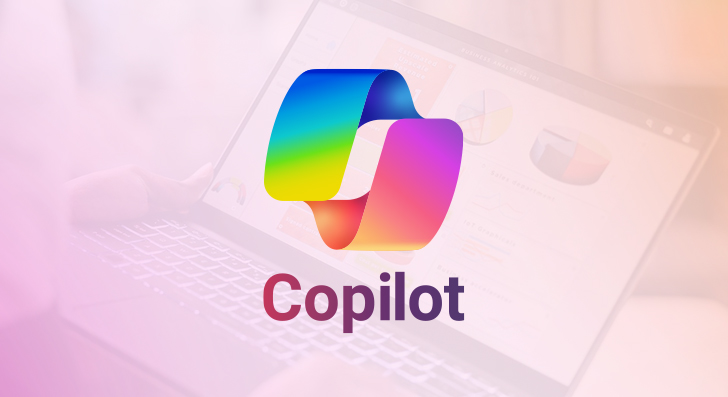
With Microsoft Copilot, users can draft emails, summarize lengthy documents, and retrieve contextual insights—all from within familiar Microsoft 365 apps. Designed to simplify workflows, it’s the ultimate productivity booster for busy professionals.
Copilot Agents: AI for the Enterprise Frontier
In 2024, Microsoft unveiled Copilot Agents, a suite of autonomous tools built on its cloud infrastructure. These agents are designed for heavy-duty tasks like processing customer returns, managing invoices, and optimizing supply chain workflows. They leverage Microsoft’s robust AI ecosystem to deliver solutions that are both reliable and scalable.
Key Features:
- Scalability at its Core: Handles growing workloads effortlessly using Microsoft’s cloud.
- Integration with Microsoft Ecosystem: Works seamlessly across Office 365 and Azure.
- Autonomous Operations: Reduces human intervention, saving time and costs.
ServiceNow AI Agents: Boosting Efficiency 24X7
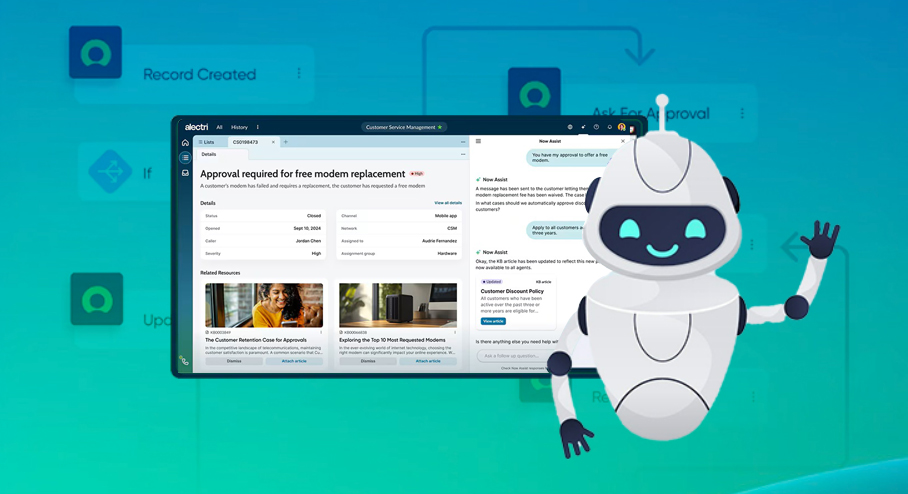
ServiceNow AI Agents, embedded in the Now Platform, autonomously handle repetitive tasks, boosting productivity across various business functions. Operating on a unified platform, architecture, and data model, these agents can be deployed across an entire enterprise for a wide range of applications. Integrated securely with existing data, workflows, and integrations, they utilize industry-specific large language models and a reasoning engine to understand deeper business contexts. This enables them to make informed decisions and perform tasks efficiently. With AI Agents providing end-to-end automation, employees can focus on more strategic tasks.
Key Features:
- Automated Task Execution: Handles repetitive tasks to enhance productivity.
- Unified Platform: Operates on a single platform, architecture, and data model for enterprise-wide deployment.
- Secure Integration: Works securely with existing data, workflows, and integrations.
- Industry-Specific Models: Utilizes large language models and a reasoning engine for deeper business context understanding.
- End-to-End Automation: Allows employees to focus on strategic tasks by automating grunt work.
Battle of the Titans: Comparing Salesforce, Microsoft, and ServiceNow
When it comes to AI Agents, performance boils down to three critical metrics: efficiency, accuracy, and scalability.
- Efficiency: Salesforce’s Agentforce excels in CRM-focused tasks, while Microsoft offers broader applicability across industries. ServiceNow shines in IT service management (ITSM), with tools specifically designed for IT workflows.
- Accuracy: Microsoft’s cloud-based AI models lead in precision, followed by Salesforce’s CRM-specific insights and ServiceNow’s IT-centric predictions.
- Scalability: Microsoft holds the edge with its Azure platform, but Salesforce and ServiceNow are also highly adaptable, with additional configurations for large-scale use.
Integration Capabilities: A Key Differentiator
While Salesforce dominates CRM integration, Microsoft stands out for its flexibility across third-party systems like SAP or Oracle. ServiceNow Agents, though narrower in focus, provide seamless deployment in IT-centric environments, making them a go-to for ITSM.
Summing Up
The future of AI Agents is bright, with exciting advancements on the horizon. Deep learning, edge AI, and context-aware decision-making are set to make these tools even smarter.
Businesses can expect:
- More Automation: Reducing reliance on human intervention.
- Enhanced Insights: Better predictions for informed strategies.
- Elevated Customer Experiences: Personalized, real-time interactions at scale.
- Unprecedented Innovation: Unlocking new business models and optimizing operations.
As agents grow more intelligent, businesses must address challenges around data privacy and ethical AI to build trust with stakeholders. Combining AI Agents with IoT or blockchain could create ecosystems where machines collaborate intelligently, further expanding their potential.



